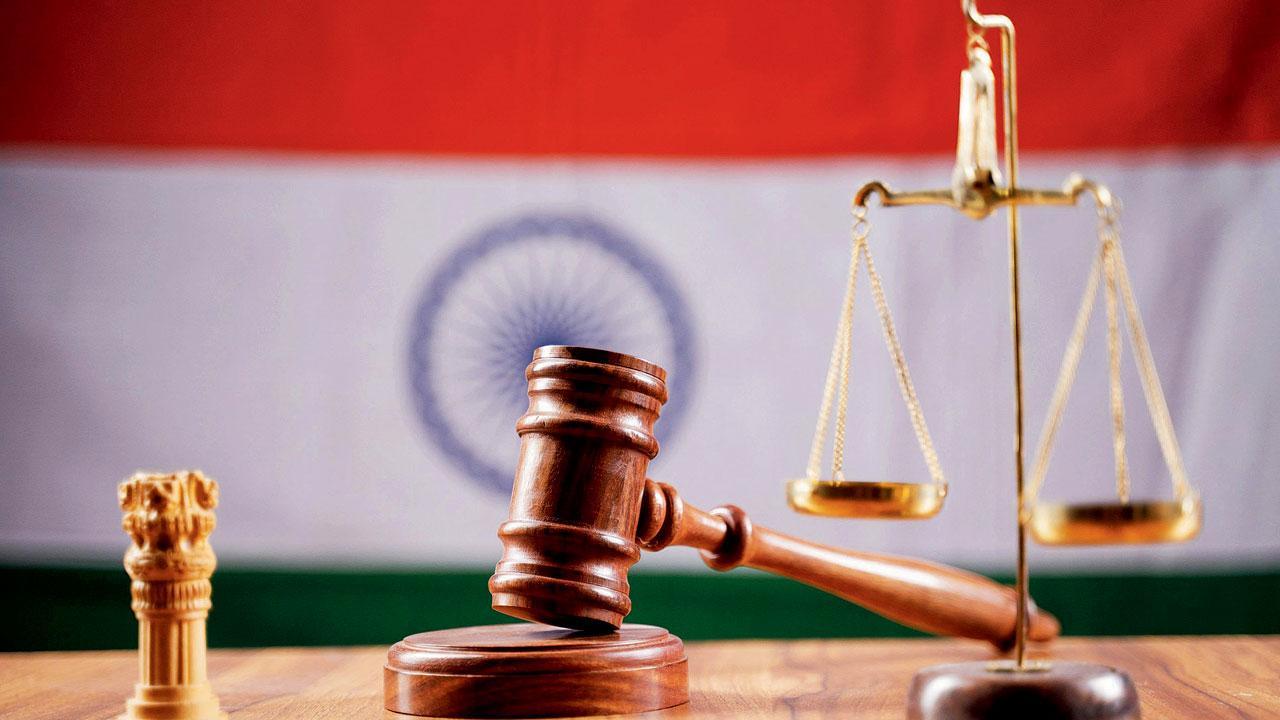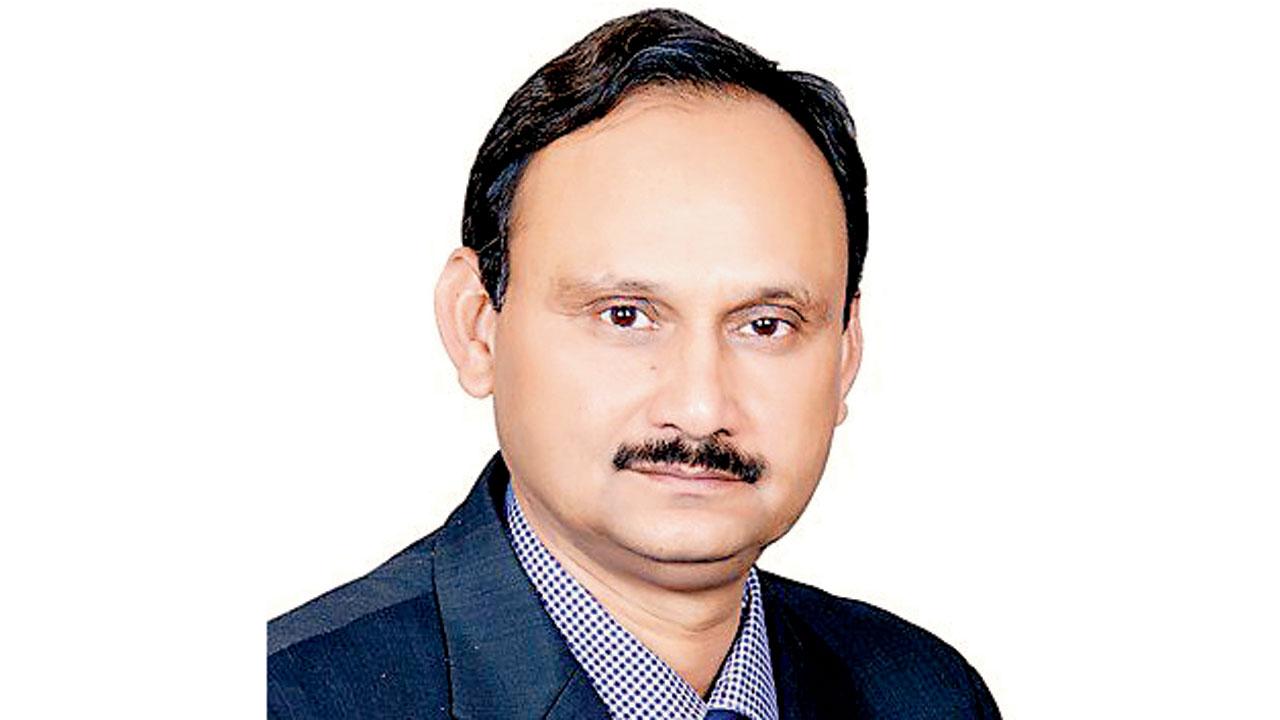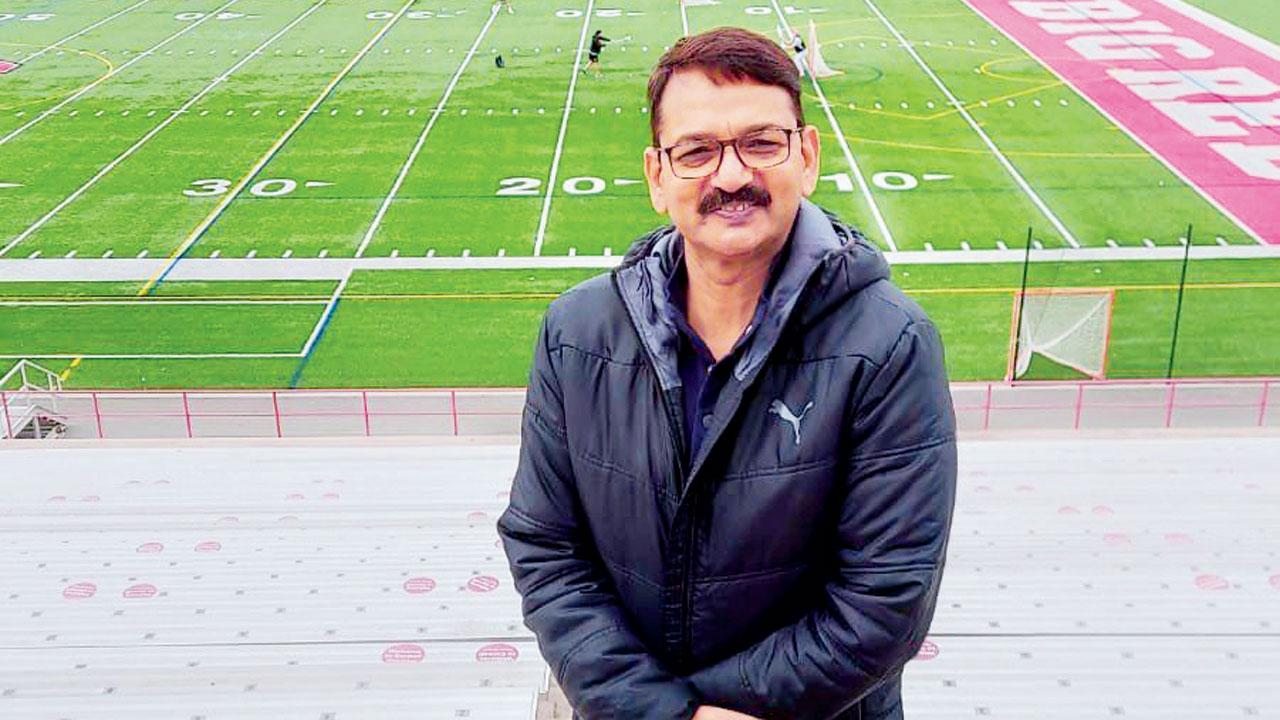Criminal justice expert discusses five methods which can help in redressal of cases at a local level, thus making justice more accessible for citizens

Representative Image
Rising pendency in courts across the country, which reached 4,21,98,488 on Tuesday, calls for setting up of judicial infrastructure as well as adopting methods to improve the criminal justice system, say experts. As per data from the National Judicial Data Grid, there are 1,08,38,264 civil cases and 3,13,50,224 criminal cases pending in courts.
mid-day had on October 1 highlighted the high pendency as well as underreporting of criminal cases across the country. mid-day held a discussion with Dr Arvind Tiwari, professor and dean, School of Law, Rights and Constitutional Governance at Tata Institute of Social Sciences, about possible ways to mitigate the situation. Dr Tiwari mentioned five methods to improve the situation.
“Firstly, community policing should be encouraged in both rural and urban areas. Unfortunately, community policing needs to be institutionalised, even though some top police officers think otherwise. Also, community policing is not considered as a performance review key for the police, and hence not adhered to effectively. The police need to adapt to bridge the gap between police and public,” Dr Tiwari said.

Dr Arvind Tiwari
He added, “Secondly, the Gram Nyayalayas Act, 2008, which came into force on October 2, 2009, can be used for speedy redressal in rural parts. Unfortunately, this is non-functional today. It should be revived so that the petty cases could be tackled and resolved without the need of a court. In Maharashtra too, the police initially conducted slum panchayats to solve petty issues in the slum pockets, but for some unknown reasons, this practice has been called off.”
Also Read: Here’s what’s up with our criminal justice system
“Thirdly, the Hyderabad police model, wherein the police go beyond routine policing, should be adopted all over. Cops should take down citizens’ complaints pertaining to civil, civic, electrical issues or otherwise and refer them to the departments concerned,” he said.
“Fourthly, the government of Maharashtra had a very good concept called Tanta Mukti Scheme which operated in rural areas. It is an alternative dispute redressal mechanism which included police patil and gram sabha members, who would handle and resolve petty issues. While the scheme was misused by some governing members, if implemented properly, this can be a good redressal system,” Dr Tiwari added.
The fifth point mentioned by Dr Tiwari is in line with the Sustainable Development Goals adopted in the United Nations in 2015. “Of the 17 goals, goal 11 is about making cities inclusive, safe, resilient and sustainable. Similarly, goal 16 is about promoting peaceful and inclusive societies, providing access to justice for all, and building effective, accountable and inclusive institutions at all levels. Goal 16 also talks about reducing all forms of violence and related death rates. If these measures are implemented and petty matters are resolved at local levels, the pendency of cases in our courts will by default reduce,” he said.
It’s a global issue
Additional Director General of Police Dr D K Goswami, who is currently pursuing research as a Fulbright Fellow on Wrongful Convictions and Innocence Claims, at Cornell Law School in the USA, said, “Every country across the globe has strengths and weaknesses in criminal justice administration.”

Additional Director General of Police Dr D K Goswami
Dr Goswami, an expert on the interface of Forensic Science and Law and Criminal Investigation, explained, “India has several good practices worth portraying at the global panorama. For instance, in California, a recent piece of law has been enacted, wherein the police were given the power to register an offence only if the value of the stolen property exceeded a certain amount. This was welcomed by few while some criticised the new enactment citing that offenders would only target properties with lesser value to evade police action. In India, there are no such restraints.”
When asked for the solution to ensure that the pendency of court cases are brought down, he said, “In the USA, every state has its own Supreme Court. India may, similarly, consider judicial reforms customised for our purposes. We may consider having a Supreme Court in every state while the Federal Supreme Court deals with Constitutional cases and matters of higher importance referred to by the President. This will help bring down the number of cases in courts.”
 Subscribe today by clicking the link and stay updated with the latest news!" Click here!
Subscribe today by clicking the link and stay updated with the latest news!" Click here!








